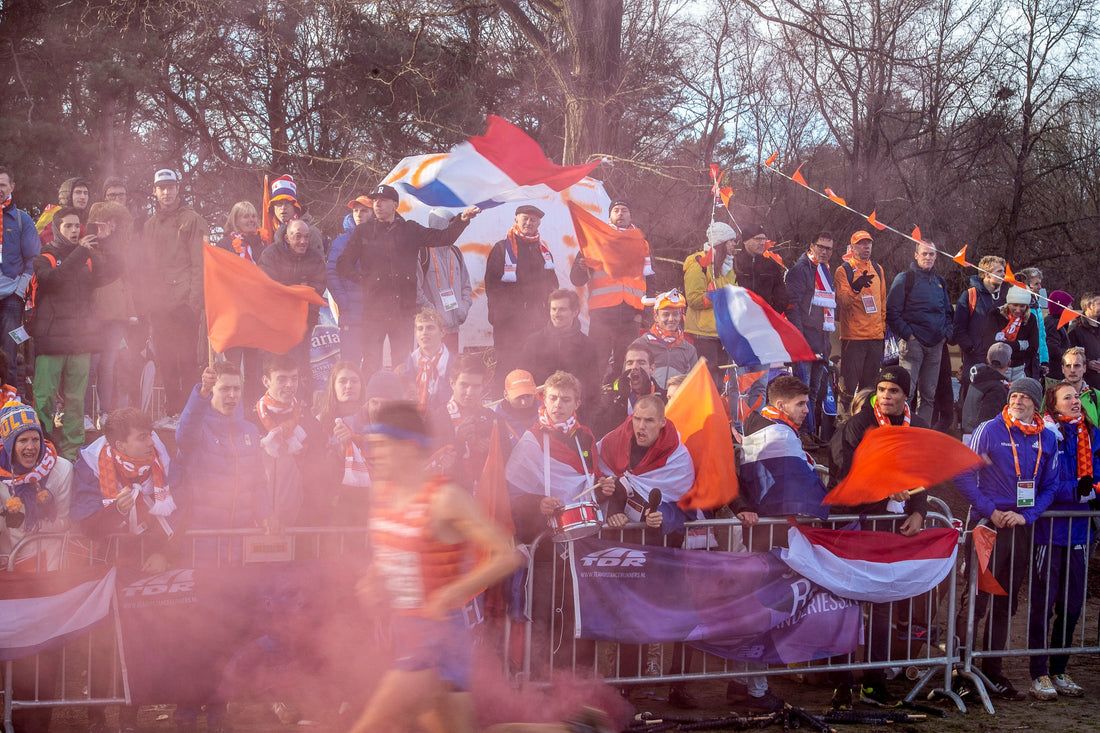
Thirty years of dirt: the European XC Championships (est 1994)
Share
The European Cross Country Championships have been a cornerstone of the athletics calendar since their inception in 1994. From humble beginnings to a premier event showcasing Europe’s top distance runners, the championships have become a celebration of endurance and strategy. Yet, alongside the triumphs and memorable moments, the event has seen its fair share of controversies, raising important questions about eligibility, doping, and gender equality.
Humble Beginnings and Early Success
The championships were first held on December 10, 1994, in Alnwick Castle, England—later famous as a filming location for the Harry Potter films. Back then, the event was straightforward, featuring just two races: a 4.5 km women’s race and a 9.1 km men’s race. Athletes from 23 countries competed, with Ireland’s Catherina McKiernan and Portugal’s Paulo Guerra claiming the first titles.
What made this debut special was the simplicity and charm of cross-country running at its finest: muddy terrains, unpredictable weather, and fierce competition. Over the years, the championships evolved, introducing junior races in 1997, an under-23 category in 2006, and the mixed relay in 2017. These additions made the event inclusive and more dynamic.
Moments of Glory and Controversy
While the championships have celebrated Europe's top talents, they’ve also faced challenges that have shaped their identity.
Global Mobility or Plastic Passport-Holders
One of the most heated controversies arose in 2016 during the championships in Chia, Italy. Kenyan-born athletes Aras Kaya and Yasemin Can, competing for Turkey, claimed victories in the senior men’s and women’s races, respectively. This ignited debates about the fairness of nationality transfers, with critics arguing that such practices dilute the spirit of the competition.

Irish Olympian Sonia O’Sullivan called the situation “a shame,” lamenting that it undermined European athletes’ achievements. Jerry Kiernan echoed these sentiments, labeling the eligibility rules “a joke.” Instances like this, where athletes with tenuous connections to their adopted nations dominate, have sparked broader discussions about the balance between inclusivity and competitive integrity.
The resurgence of Scandinavian distance running, through the Ingebrigtsen family on the men's side and Karoline Grøvdal on the women's, has put this debate into the background since 2020.
Doping Shadows
The championships haven’t been immune to the scourge of doping. A notable case involved Alemayehu Bezabeh, a Spanish athlete of Ethiopian origin, who was implicated in Spain’s high-profile doping investigation, Operación Galgo, in 2010. Despite the scandal, Bezabeh returned in 2013 to claim the senior men’s title.
His story raises questions about the effectiveness of anti-doping measures and the reputational risks for the event. It also highlights the tension between redemption narratives and maintaining a level playing field.
Equality of what?
More recently, debates about gender equality have come to the forefront. In 2021, UK Athletics proposed equalizing race distances for men and women in cross-country events. While the move was intended to promote equality, it faced resistance from the English Cross Country Association (ECCA) and other organizing bodies. Critics argued that the consultation process was “skewed, flawed, and biased,” emphasizing the logistical challenges and historical context of the event’s structure.
This debate reflects a broader conversation in athletics about how to modernize traditions while respecting the sport’s history and the preferences of its participants.
The European Championships have, in 2024, settled on race distances of about 8km for senior men and senior women.
Celebrating Dominance and Emerging Talent
Despite these controversies, the championships remain a showcase of incredible athleticism. Ukrainian legend Sergiy Lebid’s nine individual titles between 1998 and 2010 stand as a testament to endurance and consistency. On the women’s side, Norway’s Karoline Grøvdal has become a dominant force, securing consecutive senior titles in recent years.
The event has also been a launching pad for young stars. Jakob Ingebrigtsen, the Norwegian sensation, won four consecutive under-20 titles before transitioning to the senior category and winning gold in 2021 and 2022. Similarly, Italy’s Nadia Battocletti has risen through the ranks, claiming multiple titles across age categories.

Looking Ahead
As the championships celebrate their 30th anniversary in 2024, the event continues to evolve. This year’s edition in Antalya, Turkey, promises a challenging course in Dokuma Park, featuring flat terrain interspersed with sand and mud. These elements are sure to add intrigue to the competition, as Europe’s finest athletes vie for glory.

While the event’s history is rich with achievements, its controversies remind us of the complexities inherent in any global sporting competition. The debates around nationality, doping, and gender equality highlight the need for thoughtful governance and a commitment to fairness.
The European Cross Country Championships are more than a competition; they’re a celebration of grit, determination, and the joy of running. As the event moves forward, its challenges—both logistical and ethical—will continue to shape its legacy. For now, the championships remain a thrilling spectacle, showcasing the very best of European athletics while reminding us of the broader issues that define the world of sport.

